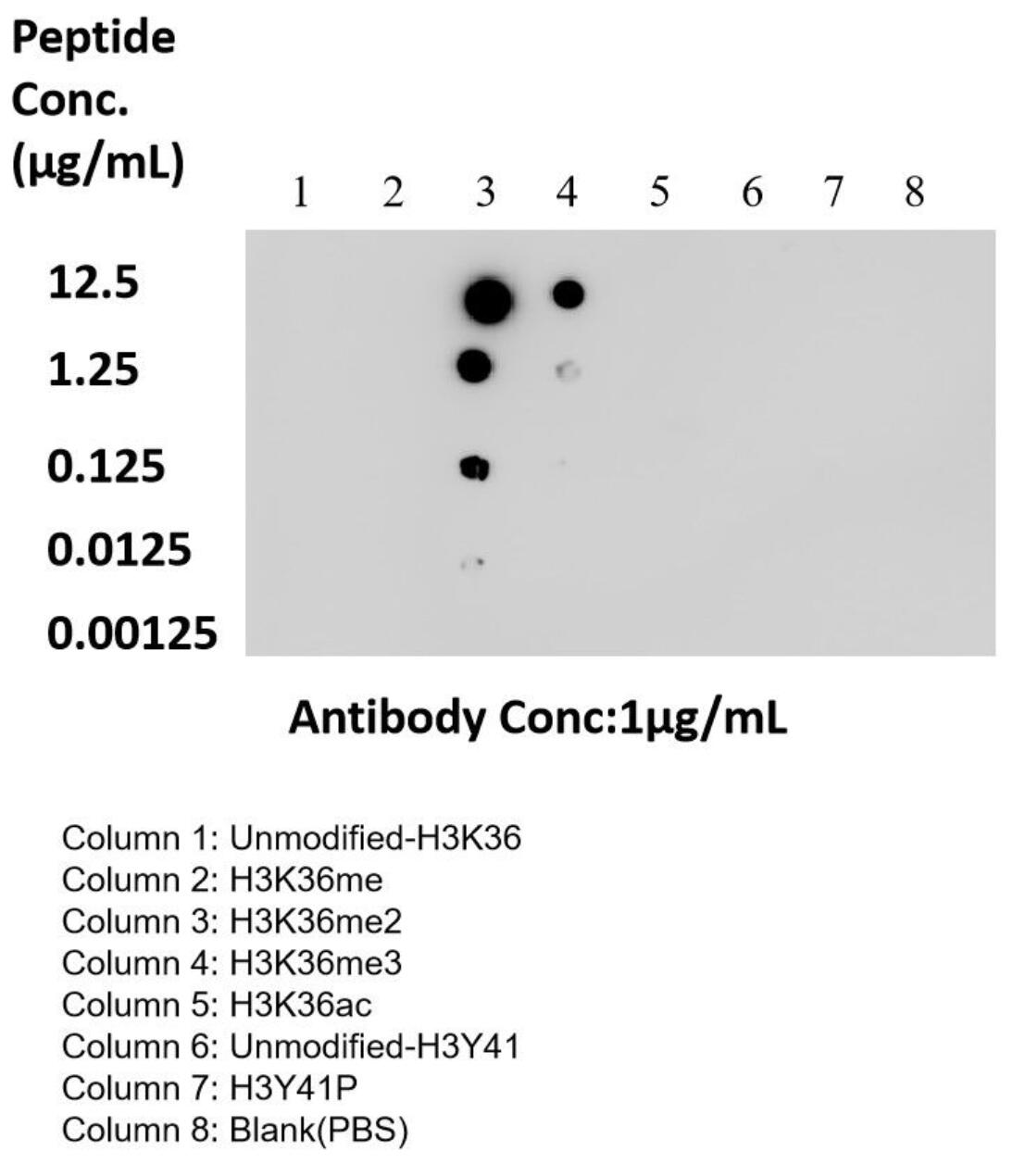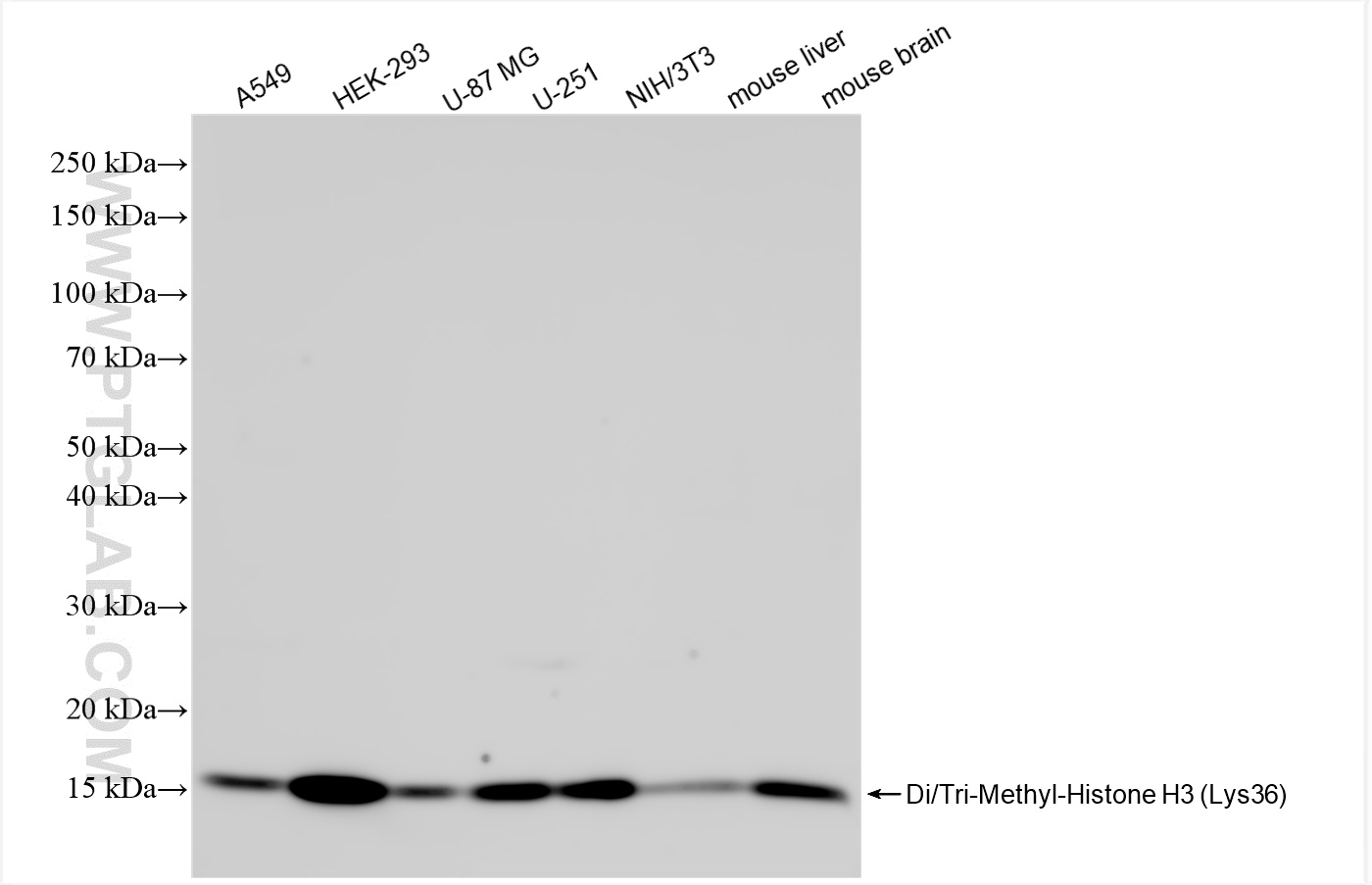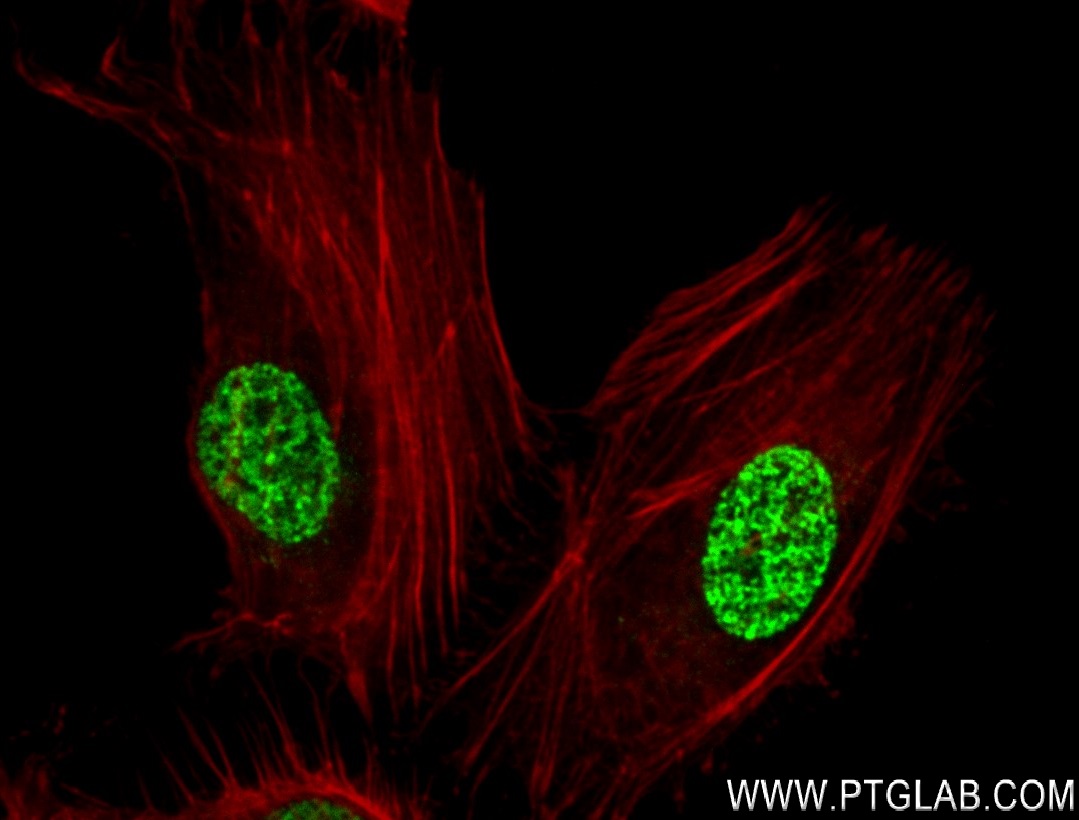Di/Tri-Methyl-Histone H3 (Lys36) Recombinant antibody, PBS Only
Di/Tri-Methyl-Histone H3 (Lys36) Uni-rAbTM Recombinant Antibody for WB, IF/ICC, Dot Blot, Indirect ELISA
Host / Isotype
Rabbit / IgG
Reactivity
human, mouse, rat
Applications
WB, IF/ICC, Dot Blot, Indirect ELISA
Conjugate
Unconjugated
CloneNo.
241139G6
验证数据展示
产品信息
84329-1-PBS targets Di/Tri-Methyl-Histone H3 (Lys36) in WB, IF/ICC, Dot Blot, Indirect ELISA applications and shows reactivity with human, mouse, rat samples.
| Tested Applications | WB, IF/ICC, Dot Blot, Indirect ELISA Application Description |
| Tested Reactivity | human, mouse, rat |
| Immunogen | Peptide 种属同源性预测 |
| Host / Isotype | Rabbit / IgG |
| Class | Recombinant |
| Type | Antibody |
| Full Name | histone cluster 1, H3a |
| Synonyms | HIST1H3A, 241139G6, Histone-H3, HistoneH3, Histone H3 |
| Observed Molecular Weight | 15 kDa |
| GenBank Accession Number | BC066245 |
| Gene Symbol | HIST1H3A |
| Gene ID (NCBI) | 8350 |
| Conjugate | Unconjugated |
| Form | Liquid |
| Purification Method | Protein A purfication |
| UNIPROT ID | P68431 |
| Storage Buffer | PBS Only |
| Storage Conditions | Store at -80°C. The product is shipped with ice packs. Upon receipt, store it immediately at -80°C |



